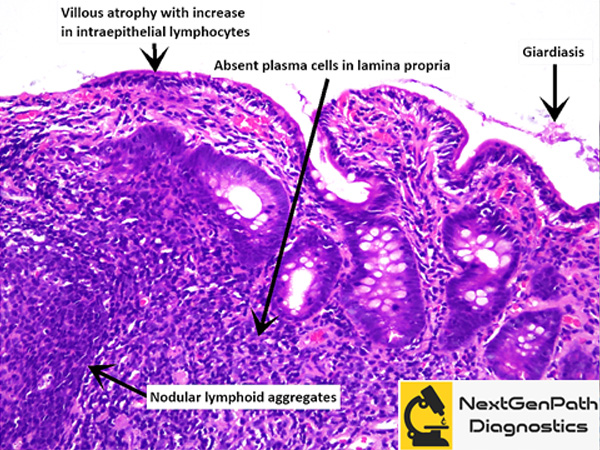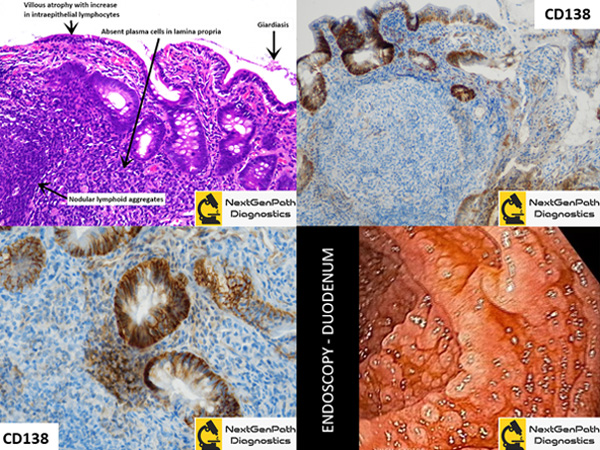Common Variable Immunodeficiency (CVID) With Giardiasis
- Common variable immunodeficiency (CVID) is a heterogeneous and complex clinical syndrome that impairs the immune system.
- The etiology is unknown in ~ 90% of cases. In ~ 10% of cases, a genetic cause is known.
- Mutations in at least 13 genes have been associated with CVID; the most frequent being TNF receptor superfamily member 13B (TNFRSF13B) gene mutations.
- The protein encoded by this gene interacts with calcium-modulator and cyclophilin ligand (CAML) and activates transcription factors NFAT, AP1, and NFkB that are crucial for B-cell maturation.
- Hence, these patients are highly susceptible to recurrent infections especially in the lungs, sinuses, and gastrointestinal tract.
- Diarrhea is a common manifestation of CVID and the endoscopy of small intestine shows multiple mucosal nodularities .
- Biopsy may show villous atrophy with increase in intraepithelial lymphocytes, crypt apoptosis, lymphoid nodules and absence of plasma cells in lamina propria. Giardiasis is a common infection observed in the biopsy of these patients.
- The work-up of such patients should include testing for primary and secondary immunodeficiency.
- Close follow-up is required as these patients are at risk of developing other autoimmune disorders and malignancies
References
- Daniels JA, Lederman HM, Maitra A et al. Gastrointestinal tract pathology in patients with common variable immunodeficiency (CVID): A clinicopathologic study and review. Am J Surg Pathol. 2007;31:1800-12.
- Lee JJ, Ozcan E, Rauter I, et al. Transmembrane activator and calcium-modulator and cyclophilin ligand interactor mutations in common variable immunodeficiency. Curr Opin Allergy Clin Immunol. 2008;8:520-6.
- Odetola O, Ananthanarayanan V. Gastrointestinal presentations of common variable immunodeficiency: Hiding in plain sight. Arch Pathol Lab Med. 2019;143:525-530.



